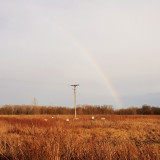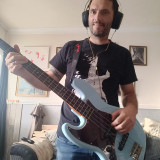Police Abolition.
-
Poet on the Piano
5 years ago, updated 5 years agoWanted to specifically make a post about the role of police in society, in the US is all I can speak for, and what it means when we have recently heard demands to defund and abolish the police.
Walter Wallace Jr., a 27-year-old Black father, twin and son who dealt with mental illness, was killed by police in Philadelphia a few days ago. This mirrors the story of Saheed Vassell, who also dealt with mental illness and was killed by Brooklyn police in 2018 after being seen holding a metal pipe, which police thought was a gun.
Police should not act as executioners, and in dealing with mental health crises, there are far better tools that can be called upon rather than armed officers, that can actually inflict more trauma and violence in the situation. I don't necessarily think that more police training will instantly improve situations, because police will still be armed. It is not a matter of simply "obeying the police", especially in regards to someone dealing with a mental health crisis, where there could be psychosis or the inability to think rationally. Either way, disobeying a police officer should not be a death sentence.
I think it's important to talk about the police as a system, not about the individual character. A cop may have all the best intentions in the world, have good morals, and truly want to serve his or her community, but the current police state upholds racist laws and often targets unarmed people of color. This is why the argument of "not all cops are bad" or "it's only a few who ruin the bunch" really doesn't add anything to how to solve police brutality or move forward with less cases of it. Even if there are weapons brought to the police's attention, like with Walter Wallace and Saheed Vassell, police should not have the authority to kill. These cases take a lot of time and usually the officers under investigation never get charged because they claim they were acting in self-defense. This is an abuse of power considering that officers come to the situation armed, and already have a huge advantage. Police lives should not automatically matter more. In Walter's case, they did not use every means of de-escalation. Walter's mother was with him and let the police know about his mental illness, as did others, but that did not change the outcome. Mental illness should not be a crime.
"10 Actions Ideas for Building a Police-Free Future" from https://www.mpd150.com
1. An easy one: STOP calling the police when it’s clearly unnecessary.
2. Get trained in first aid, crisis de-escalation, restorative justice, etc.
3. Build community all the time, not just in times of trouble.
4. If you DO need police, go to them instead of calling them to you.
5. With mental health crises, remember to center the person in crisis.
6. Make a list of local services/hotlines you can call instead of the police.
7. Support organizations that really do keep our communities healthy.
8. Zoom in and find solutions where you are.
9. Engage in policy work that can prevent, rather than just punish, crime.
10. Dream bigger: there was a time before police, and there will be a time after.
One of the counterpoints I've heard is that having less of a police presence in a community will increase the crime rate.
https://www.usatoday.com/story/news/investigations/2019/02/13/marshall-project-more-cops-dont-mean-less-crime-experts-say/2818056002/
I am not the best at discerning statistics, but one thing to particularly look at is how police are being used in each community. How can we help limit calls to police unless absolutely necessary? The big takeaway here is investing in and relying on the community as a public safety method.
There are resources listed below to help in understanding what police abolition would look like and why it is being talked about so heavily. Taking the time, and caring enough to listen and learn, is key. Putting down any preconceived notions and being open enough to listen, instead of immediately becoming defensive when we envision something that we're not used to.
I also think that the prison industry complex is important to talk about. How we deal with people who have committed crimes and how we treat them as human beings. Mass incarceration is a criminal justice issue, and I would like to see more focus on rehabilitation, especially for those with less offenses and non-violent crimes.
In regards to protests, it's an important reminder that property can always be replaced, but human lives cannot. There should be more of a focus on the gross injustice of police brutality rather than the focus on lost or damaged property.
_________________________________________
Resources with multiple articles and topics for racial justice:
https://www.themarshallproject.org/records/3382-police-abolition
https://www.8toabolition.com/resources
https://www.mpd150.com/resources/
https://www.phillyrj.org/
__________________________
Bail funds for Philadelphia protestors:
https://www.phillybailout.org/
https://www.phillybailfund.org/
__________________________
Links/petitions/donations/resources:
https://blacklivesmatters.carrd.co/ -
Darren replied to Poet on the Piano
5 years agoThis is a great post.
I'm going to come across as blowing the British trumpet ....yet
I believe that the British police force as a whole actually work to similar guidelines, so they are in effect police as non police.
Our police are social workers, community support officers etc.
I think Americas problems run a lot deeper than the police.
Just saying, if every Brit was allowed a gun, I think you would see a wholly different police force in the UK.
In my humblest of opinions -
Larry Chamberlin
5 years agoProvocative post, MA!
What does this mean from the list of alternatives you gave:
"With mental health crises, remember to center the person in crisis." -
silvershoes
5 years ago, updated 5 years agoExcellent post! I especially love the list you provided. It made me feel empowered, like there are clear actions I can take to help protect myself and others. Some favorites: STOP calling the police when it’s clearly unnecessary; get trained in first aid; build community; make a list of local services/hotlines and keep this list handy; support local organizations that keep our communities safe and healthy; learn about and promote crime prevention policies. I paraphrased a bit or changed up the wording so it felt more like my voice. I find it's easier for me to remember things if I reword them.
MA, this is really awesome.
"There are resources listed below to help in understanding what police abolition would look like and why it is being talked about so heavily. Taking the time, and caring enough to listen and learn, is key. Putting down any preconceived notions and being open enough to listen, instead of immediately becoming defensive when we envision something that we're not used to."
Most of the folks I hear immediately shutting down the concept of defunding the police have not taken the time to understand the meaning behind the phrase. This is the same crowd that shouts All Lives Matter at the top of their lungs because they don't really understand the meaning behind the phrase Black Lives Matter.
"I also think that the prison industry complex is important to talk about. How we deal with people who have committed crimes and how we treat them as human beings. Mass incarceration is a criminal justice issue, and I would like to see more focus on rehabilitation, especially for those with less offenses and non-violent crimes."
BOOM. This concept is exactly why I went back to school for social work. Rehabilitation and reentry to reduce recidivism, promoting policies and working with orgs that heal communities, and reducing sentences/punishments for non-violent crime. You nailed it!
"In regards to protests, it's an important reminder that property can always be replaced, but human lives cannot. There should be more of a focus on the gross injustice of police brutality rather than the focus on lost or damaged property."
Beautifully said. -
Poet on the Piano replied to Larry Chamberlin
5 years ago, updated 5 years agoLarry, my apologies for not seeing your post! In regards to centering a person in crisis:
From the article “5 Ways to Help Someone in a Mental Health Emergency Without Calling the Police” (Tastrom):
"Remember that the person having the mental health crisis is a person and their wishes should be followed as much as is safe. The best intervention strategies will be things that the person buys into and does voluntarily. Those of us with mental health issues have likely been traumatized by doctors and other practitioners not listening to us or doing things against our will. All of this is contextual and there are no absolutes, but think about trauma when you are considering what actions to take."
so, I see it as going back to how we're equipped to handles crises. That intervention should not be dependent on weapons or knee-jerk reactions. It should be reading the situation and getting the context. If those surrounding the person are aware that it IS a mental health crisis, they can humanize the situation and make sure not to appear aggressive or add confusion in a time where the person may already be confused or scared.
I'll share again about MPD150. There are SO many resources here, and I feel they do a good job of covering all the bases and questions.
https://www.mpd150.com/resources/
The FAQ page I found especially helpful:
https://www.mpd150.com/faq/
At first, I thought reform would be enough, but I'm learning that history has shown reform efforts were ineffective or didn't last long, like the call for more body cameras etc. The main concern I've heard recently in conversations is regarding the crime rate, and that there will still be mass murders etc that communities can't deal with. We may never live in a crime-free society, and there will still be violence, but focusing on the community, and realizing how police actively harm certain communities, that's an important discussion. I see it as minimizing harm? And also thinking that just because the police may have always helped us in certain situations, doesn't mean it's automatically been that way for others.
Jane, YES! The world needs more people like you :)



